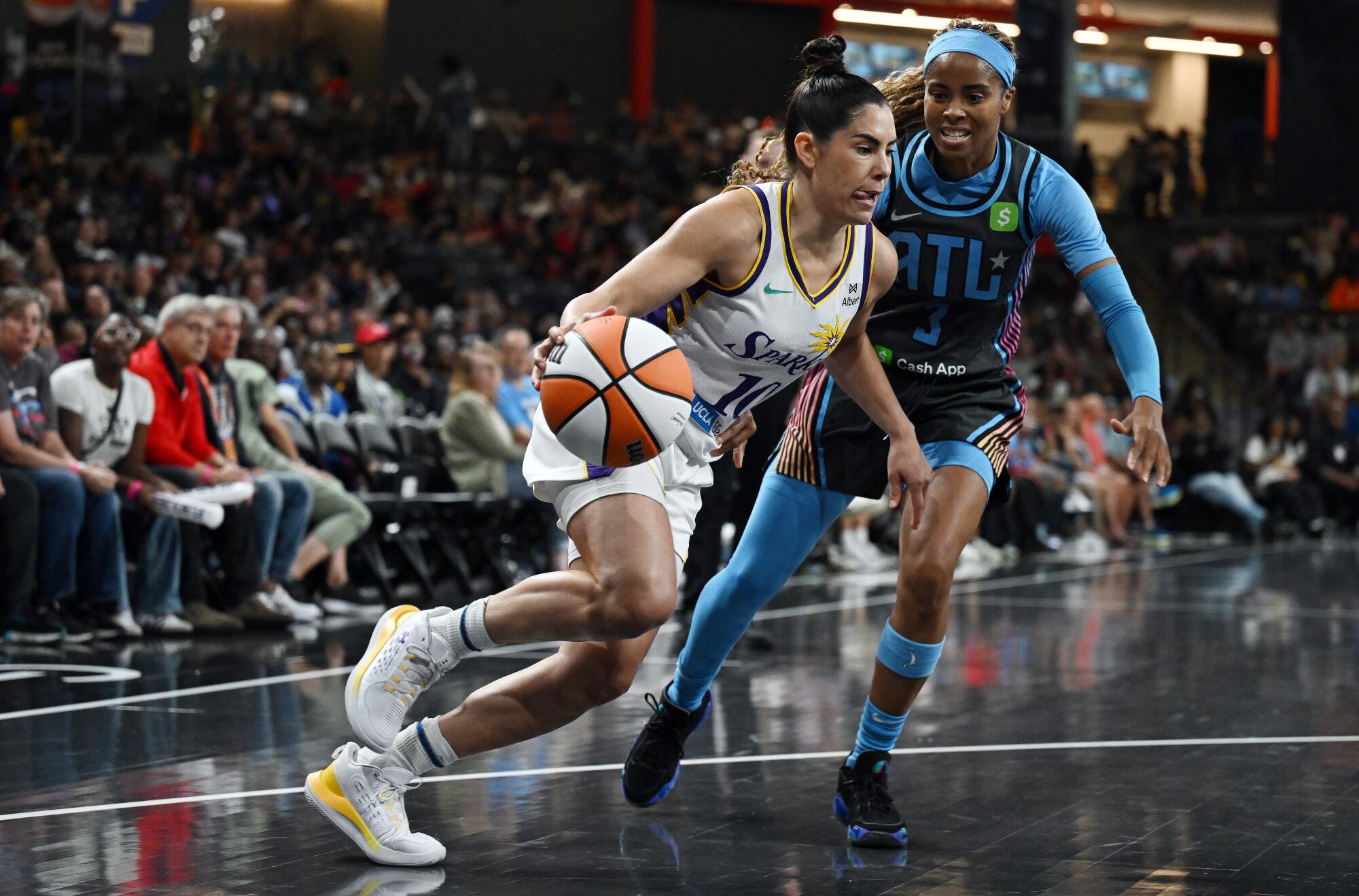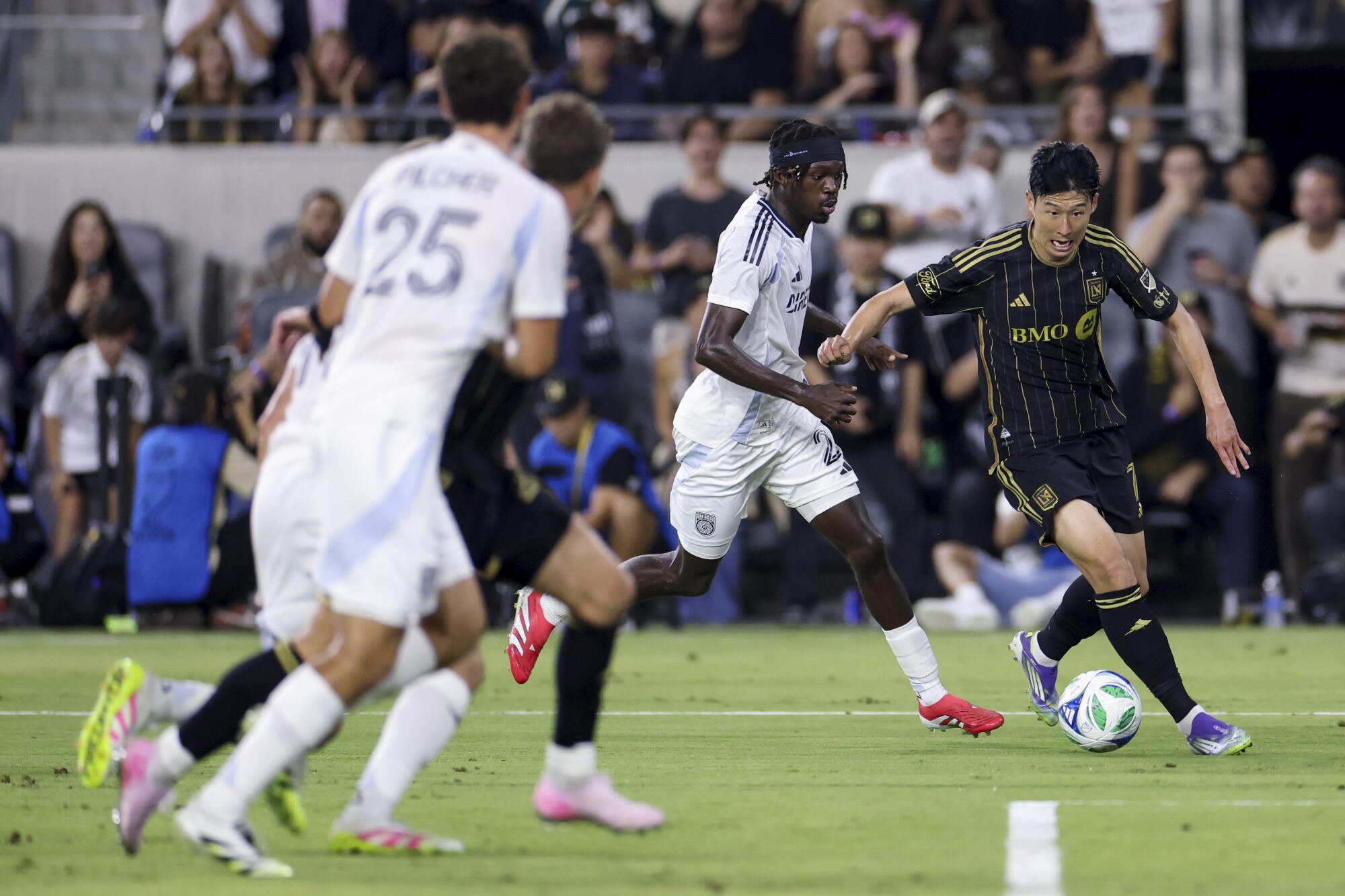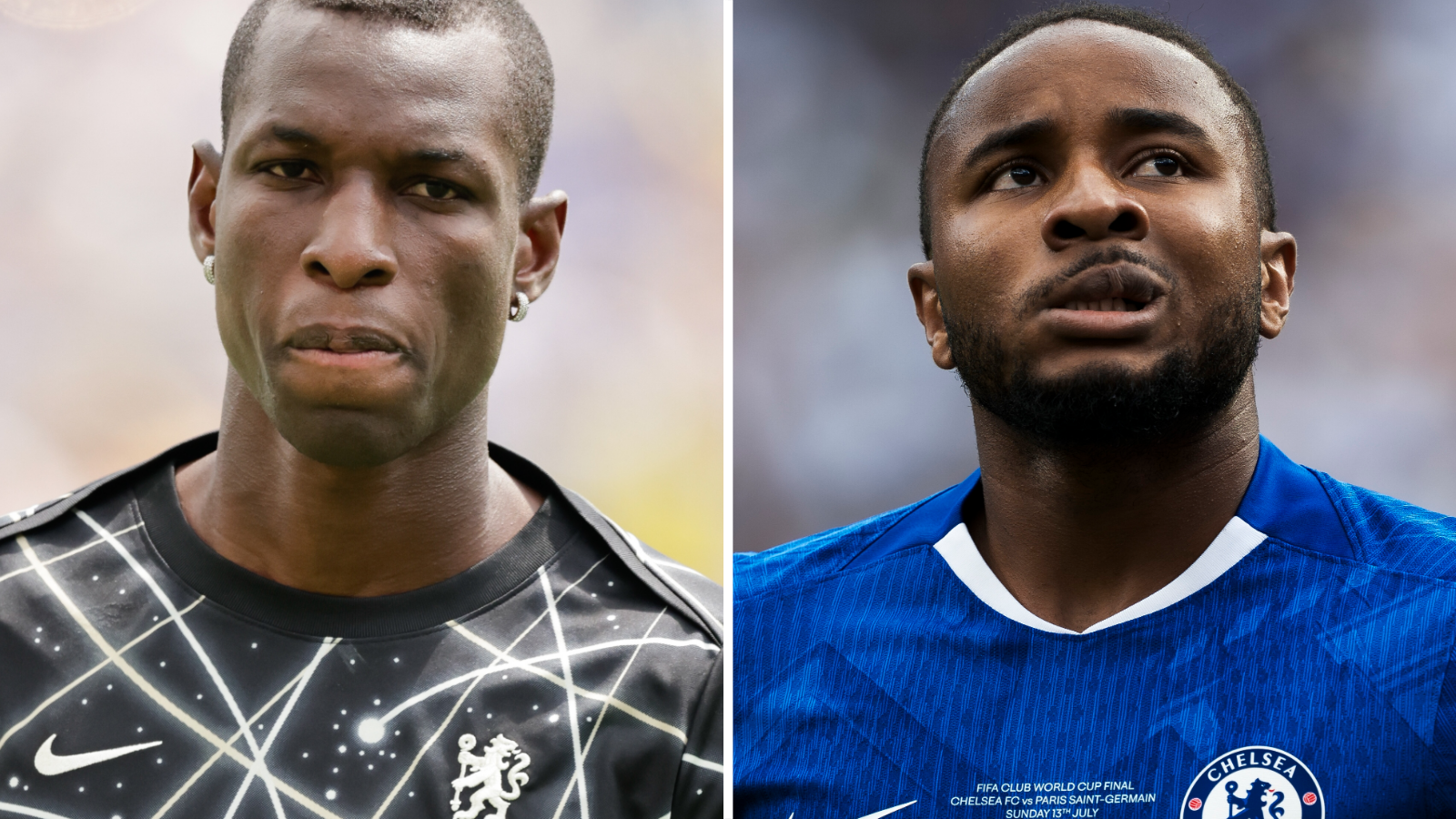One UCLA football legend sat across from the other, lamenting how far their beloved program had fallen.
On one side was Rick Neuheisel, a onetime Rose Bowl most valuable player and Bruins head coach, wondering aloud whether his alma mater had put itself in position to pick a strong successor to the recently dismissed DeShaun Foster.
“Is there confidence in the current athletic director when there’s been swing-and-misses,” Neuheisel asked, “or do you need to go find somebody else?”
On the other side of the CBS Sports studio roundtable was Randy Cross, a former All-America offensive lineman and three-time Super Bowl champion so angry about the state of the Bruins that his voice rose as he spoke.
“UCLA is clueless, they’re rudderless, they’re leaderless and it’s been decades since they had anybody there that had a freaking clue as to, A, what they want to do and, two, how they’re going to do it,” Cross said. “It sounds simple — there isn’t a better school in America to go to than UCLA — but that athletic department is a joke led by the football team.”
Theirs weren’t the only critical voices.
National college football writers and other pundits tweeted about the athletic department’s massive deficit, meager NIL resources and failed leadership. An online petition that called for athletic director Martin Jarmond’s resignation or removal generated more than 750 signatures as of Sunday evening.
Some of the fire has been friendly. Roughly 100 former UCLA football players met with Jarmond via Zoom to vent their frustrations about a variety of topics, including the need to get back to the days when football was a top priority at the school.
As UCLA commences a hiring process that will likely last until at least November, one of its biggest hurdles might be a perception problem. Its athletic department has been labeled as impoverished and directionless, with Jarmond squarely in the crosshairs of most detractors.
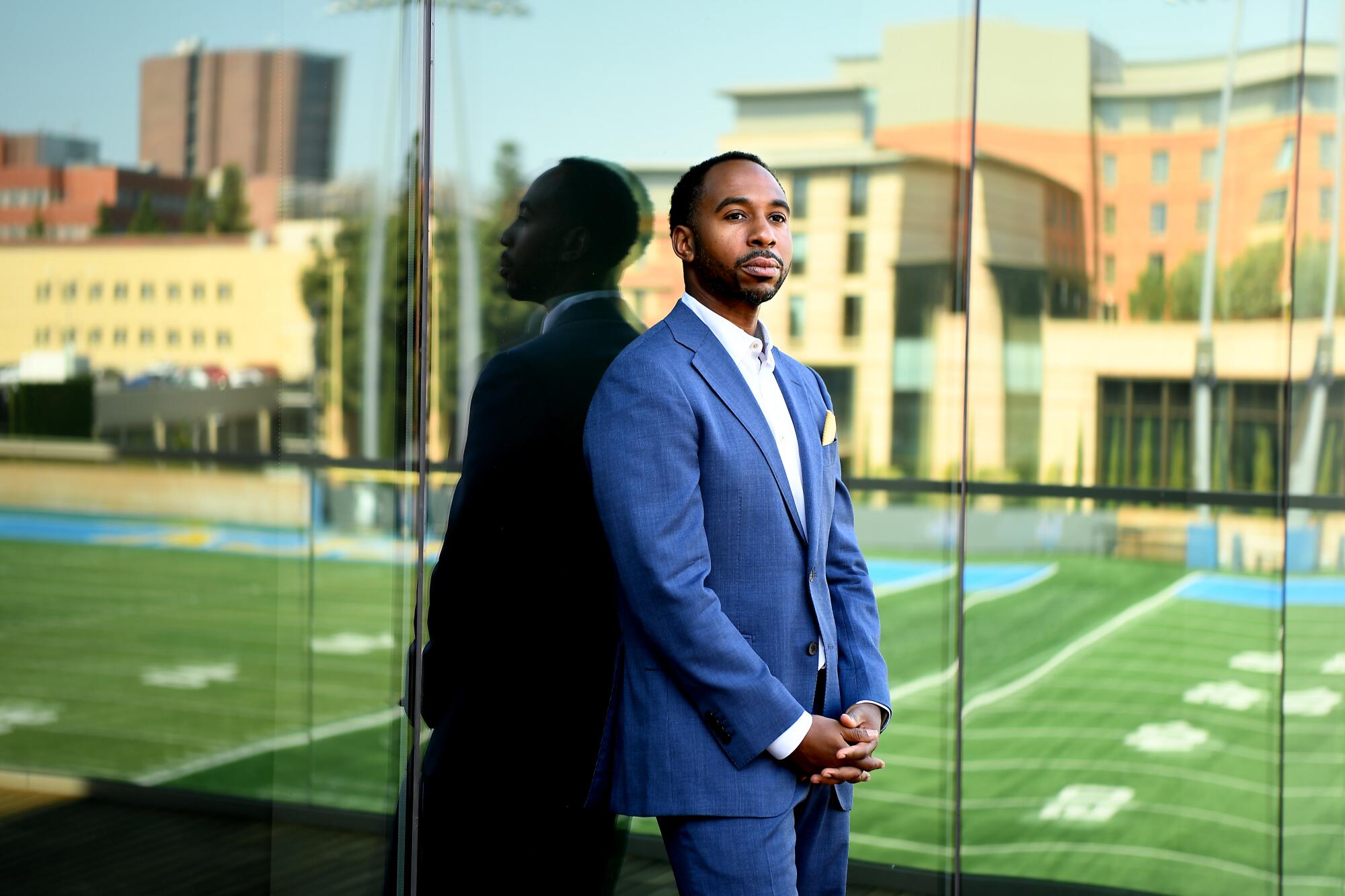
UCLA athletic director Martin Jarmond.
(Wally Skalij / Los Angeles Times)
Many have questioned whether Jarmond should be involved in selecting Foster’s replacement after so badly whiffing on his hiring. A former position coach who had never run an offense or a defense, much less a team, Foster compiled a 5-10 record that included back-to-back losses to Mountain West Conference opponents before his dismissal three games into his second season.
“The puzzle doesn’t fit together,” said one veteran agent who works in the NIL space, speaking on condition of anonymity so that he could share his thoughts on the situation candidly. “It’s like, the bad AD hires the coach and they get rid of the coach but they still have the bad AD.”
UCLA chancellor Julio Frenk affirmed Jarmond’s standing in what amounted to a vote of confidence, saying in a statement provided to The Times last week that the athletic director would “oversee the process of hiring a new head coach who will elevate UCLA football to national prominence.”
In announcing a search committee that would assist him in making that hire, Jarmond said he was convening a group of accomplished sports and business executives and UCLA greats that would be revealed once finalized.
The agent who spoke with The Times said having a committee of respected names with UCLA ties such as football legend Troy Aikman, sports executive Casey Wasserman and former Golden State Warriors general manager and Washington Commanders consultant Bob Myers could elevate the Bruins’ prospects of finding a top-level coach.
“The more heavyweights involved, definitely more people might come to the table who wouldn’t otherwise come to the table and then they can try to convince them,” the agent said. “But then you have a lot of chefs in the kitchen picking, and they can’t get it wrong this time.”
The candidates will presumably have more questions than how much they would be getting paid. What does UCLA define as football success — eight-win seasons or reaching the College Football Playoff? What resources will they commit? How firm is Jarmond’s footing inside his department? How will the school bolster its NIL program to be competitive with top counterparts around the country?
Discussions about the school’s complex finances could take up a good chunk of any meeting.
The widely circulated figure of UCLA’s athletic department running a combined $219.55-million deficit over the last six fiscal years doesn’t fully reveal the financial situation. That tab has been covered in full by the university, bringing the balance to zero, thanks in part to $30 million in direct institutional support in the most recent fiscal year.
The university’s forgiving stance has been taken, in part, because a significant chunk of athletic department revenue is diverted to several other business units on campus, including the recreation department, parking, housing, food and Associated Students UCLA, which benefits from long-held trademark and licensing agreements.
That hasn’t stopped the Bruins from making significant investments in football, mostly thanks to an infusion of cash from their Big Ten media rights deal. The team spent $2.9 million to install new grass and artificial turf practice fields while also renovating the weight room inside its relatively new practice facility. A locker room renovation is in the works.
This summer, UCLA paid to hold its 18-day training camp in Costa Mesa. The team has also spent untold millions on food, travel, biometrics and mental health services while also upgrading the infrastructure of its football staff, including general manager and assistant general manager positions and expanded coaching, analytics and recruiting departments.
UCLA committed the maximum $20.5 million for revenue sharing with its athletes, earmarking an estimated $15 million or so for football players. The team also poured millions into NIL deals consummated before the House settlement so that players could benefit prior to the NCAA’s clearinghouse, NIL Go, going into effect July 1.
But how sustainable is that kind of spending?
In May, the UCLA Academic Senate’s executive board sent a letter to Frenk and Darnell Hunt, the executive vice chancellor and provost, outlining “profound concern” related to the athletic department deficit at a time of anticipated budget cuts for academic departments.
“We have been told that financial sacrifices are necessary to ensure that there is a UCLA in the future,” the letter stated. “How can austerity of this magnitude be imposed on the core academic mission while athletics spending goes unchecked?”
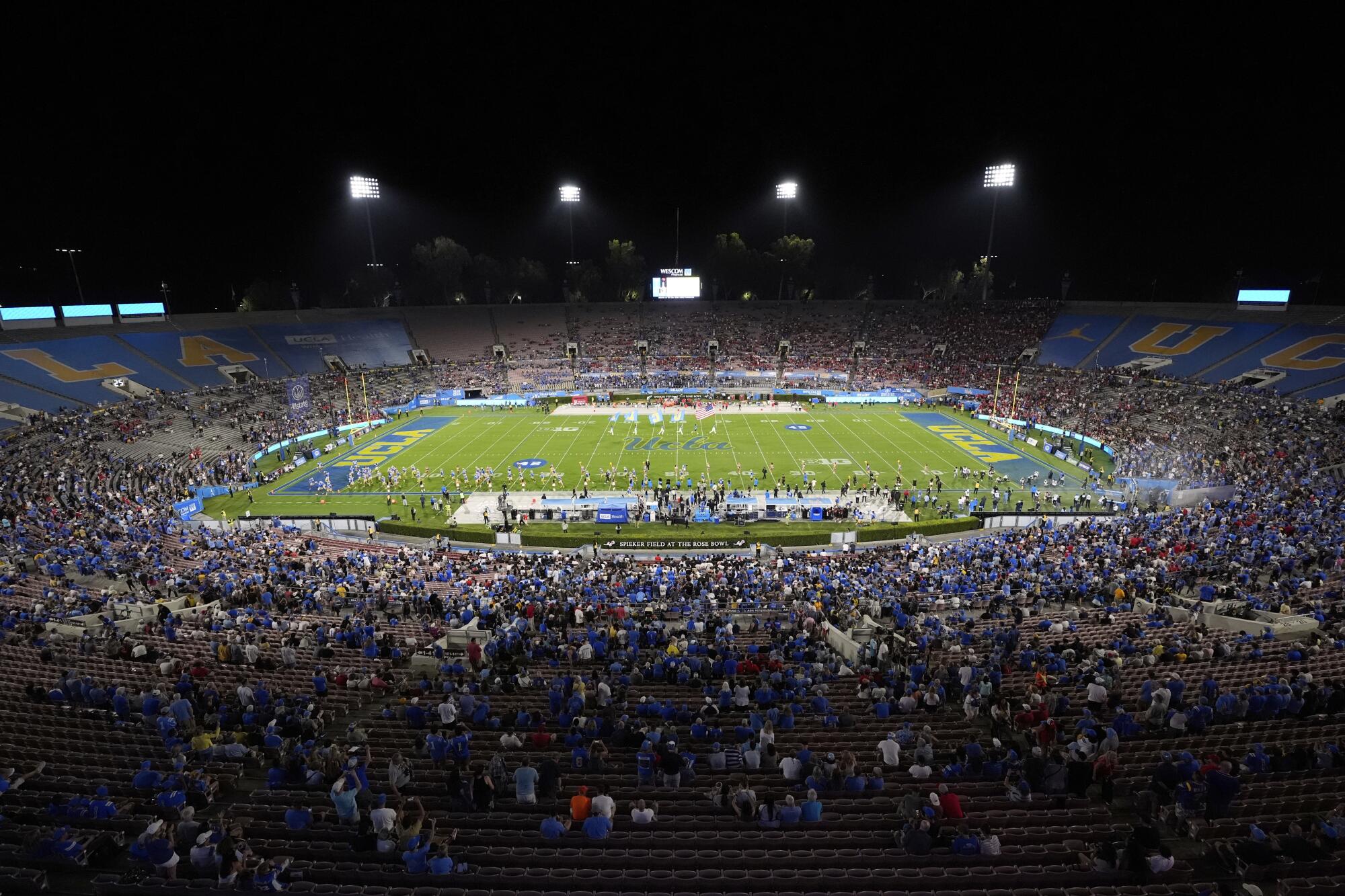
Fans attend the UCLA season opener against Utah at the Rose Bowl on Aug. 30.
(Mark J. Terrill / Associated Press)
The letter went on to note that Jarmond received a contract extension paying him more than $1.5 million annually despite never operating his department with less than a $20-million annual deficit. It also detailed several ways in which the athletic department’s roughly $80-million deficit for the most recent fiscal year (not counting the $30-million lifeline from the university) could be used to support academics, including covering nearly all in-state tuition for every doctoral student.
“All of these potential uses would directly support the academic mission in austere times,” the letter said. “Yet the money is instead being directed to bail out a non-academic department that consistently demonstrates poor fiscal management.”
The senate ended its letter by requesting, among other things, immediate assurance that campus would no longer subsidize the athletic department in any form, including providing or authorizing loans. What was Frenk’s response?
Megan M. McEvoy, the academic senate chair for the 2025-26 school year who is also a UCLA professor of microbiology, immunology and molecular genetics, told The Times that the academic senate did not receive a reply and its concerns are ongoing.
But any pressure to save will undoubtedly be offset by calls to spend.
During a discussion of the coaching openings at UCLA and Virginia Tech on ESPN’s “College GameDay” on Saturday, reporter Pete Thamel noted that the Hokies were adding $50 million to their athletic department budget to display their commitment to winning at the highest level.
Host Rece Davis wryly added that of the two schools, Virginia Tech was the one that knew what needed to be done.
The agent who spoke with The Times said that UCLA’s best move might be to hire a coach from a lower-level conference who could bring a good chunk of his roster with him like Curt Cignetti did as part of his transition from James Madison to Indiana. In his first season with the Hoosiers, Cignetti won 11 games and took his team to the College Football Playoff.
“If you bring in a guy from Tulane, where those players don’t make as much [in NIL] as what UCLA has to pay,” the agent said, “you can just get it all done in a one-stop shop, so that’s a very interesting dynamic. I don’t think an A-lister [at a bigger school] can really build it as fast as the B-plus guy because the B-plus guy can bring players from his school right now.”
That’s assuming, of course, that the B-plus guy takes UCLA’s call.

